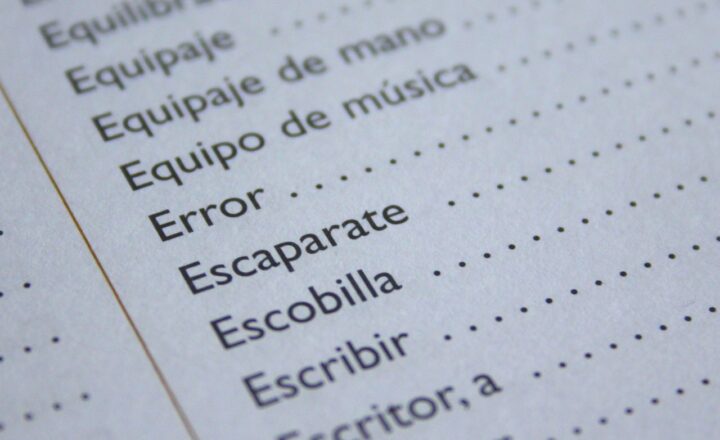
When learning English, many non-native speakers focus on grammar rules, vocabulary, and pronunciation. However, one crucial aspect that often gets overlooked is the use of collocations. Collocations are combinations of words that frequently appear together, and mastering them can significantly enhance your fluency and sound more natural. In this article, we will delve into what collocations are, why they are important, and how you can improve your usage of them to speak English more effortlessly.
1. What Are Collocations?
Collocations refer to the way words are often used together in a language. They are not random word pairings, but rather pairs or groups of words that go together more often than chance would suggest. For example, native speakers routinely say “make a decision” instead of “do a decision” or “strong coffee” rather than “powerful coffee”. Understanding and using collocations can help you sound more like a native speaker.
Collocations can consist of two or more words and fall into several categories:
- Adjective + Noun: strong coffee, fast food, heavy rain.
- Verb + Noun: make a decision, take a shower, keep a promise.
- Noun + Noun: a piece of advice, a bottle of water, a bunch of grapes.
- Verb + Adverb: break completely, run quickly, sleep soundly.
- Adverb + Adjective: deeply concerned, fully aware, completely satisfied.
Understanding the common combinations in English can make your speech and writing more coherent and contextually appropriate.
2. Why Are Collocations Important?
Collocations play a crucial role in effective communication.
Firstly, they enhance fluency. Non-native speakers often fixate on individual words, leading to awkward phrasing. By learning collocations, you can produce more fluid and natural-sounding sentences.
Secondly, collocations convey meanings more precisely. Certain word combinations carry specific connotations that individual words might not convey. For instance, saying someone has a “strong dislike” sounds more emphatic than “big dislike”, which may confuse listeners.
Lastly, using collocations appropriately showcases your level of proficiency. Native speakers commonly use collocations without even realizing it, so incorporating them into your speech can help you blend in more easily. It allows others to perceive you as someone who is comfortable with the language.
3. Tips for Mastering Collocations
Mastering collocations requires practice and awareness. Here are some tips on how to improve your usage of collocations in English:
a. Read Widely
Reading a variety of materials – from books and newspapers to blogs and articles – helps you see how collocations are used in context. Pay attention to word combinations and make note of the phrases that stand out to you. Over time, these collocations will become a part of your active vocabulary.
b. Keep a Collocation Journal
Start a dedicated journal where you write down new collocations you encounter. You can organize them by categories, types, or themes, making it easy to refer back to them when practicing.
c. Practice Speaking with Native Speakers
Engaging in conversation with native speakers exposes you to natural language use. Platforms like language exchange websites or conversation clubs can provide you with the opportunities to practice and receive feedback on your collocations.
d. Use Online Resources
There are numerous online resources dedicated to helping language learners master collocations. Websites, applications, and forum communities can offer exercises, quizzes, and examples to help you practice and apply what you’ve learned.
e. Incorporate Them into Writing Exercises
When writing essays or journal entries, challenge yourself to use specific collocations. This will help you become more conscious of your word choices and improve your ability to express ideas fluently.
4. Common Collocations to Get You Started
To help you begin, here are some frequently used collocations across various categories:
a. Daily Activities:
– make breakfast
– do exercise
– have a rest
– take a nap
b. Work-Related:
– attend a meeting
– meet a deadline
– give a presentation
– make a profit
c. Emotional States:
– feel happy
– get upset
– show appreciation
– express concern
d. Descriptive Collocations:
– high expectations
– strong opinion
– deep understanding
– bright future
Incorporating these into your daily conversations will help you practice and familiarize yourself with their usage.
5. Conclusion
Mastering English collocations is a transformative step toward improving your fluency and sounding more like a native speaker. By making an effort to recognize, practice, and incorporate them into your language, you can enhance your communication skills. The process might take time and patience, but the payoff is worth it; you’ll find conversations flowing more easily and naturally.
To embark on your journey of mastering collocations, remember to read, listen, practice speaking, and keep a collocation journal. With each small step, you will find yourself increasingly comfortable and confident in using English collocations in everyday contexts.







